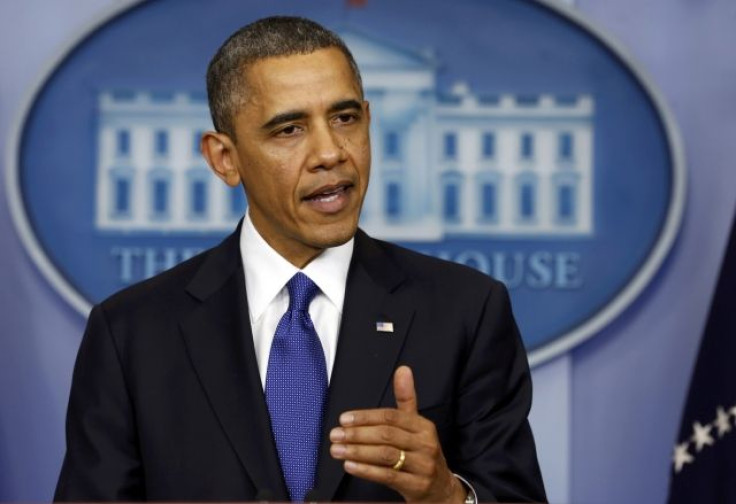Obama: If No Fiscal-Cliff Agreement Is Reached, Tax-Cut Bill Will Be First Up January

U.S. President Barack Obama remained confident Sunday that a fiscal-cliff deal would be done within 48 hours, but if Republicans block a forthcoming Senate measure, then his first proposal next year will center on cutting taxes for middle-class families.
“One way or another, we will get through this,” Obama said on NBC's “Meet the Press” program. “Do I wish that things were more orderly in Washington, and rational, and people listened to the best arguments and compromised and operated in a more thoughtful and organized fashion? Absolutely. But when you look at history, that’s been the exception rather than the norm.”
Meanwhile, Senate leaders and their staffers were meeting in closed-door sessions Sunday, working to achieve a bipartisan plan for averting the estimated $600 billion in spending cuts and tax increases that otherwise would begin Jan. 1. However, the nation is hours away from going over the cliff because Democrats and Republicans are worlds apart on taxes.
The president is hoping for a deal that would shield about 98 percent of Americans from tax hikes, which, in essence, would bolster consumer confidence and incomes.
In terms of income taxes, Democrats want an increase for households making more than $250,000 annually, while Republicans do not want any increase at all, but if push should come to shove, they want the threshold much higher.
The two political parties are also separated on the estate-tax rate, which could jump to 55 percent from 35 percent for estates worth more than $1 million.
While they sort out the tax issues, Senate leaders also have to address the looming spending cuts. If the full effect of sequestration starts to kick in on New Year's Day, federal agencies -- and a host of others, encompassing both the public and private sectors -- will be forced to deal with cuts that could impact jobs and government budgets at all levels.
Under the currently projected sequestration, some domestic programs would be hacked by 8.2 percent and military programs would be slashed by 9.4 percent next year.
When questioned on "Meet the Press" about his accountability in the current fiscal-cliff impasse, Obama answered, “[I]f folks can't say 'Yes' to good offers, then I ... have an obligation to the American people to make sure that the entire burden of deficit reduction doesn't fall on seniors who are relying on Medicare.”
“There is a basic fairness that is at stake in this whole thing that the American people understand, and they listened to an entire year’s debate about it,” Obama said. “They made a clear decision about the approach they prefer, which is a balanced, responsible package. They rejected the notion that the economy grows best from the top down. They believe that the economy grows best from the middle class out.”
The president added: “[A]t a certain point, it is very important for Republicans in Congress to be willing to say, ‘We understand we’re not going to get 100 percent. We are willing to compromise in a serious way in order to solve problems.’”
Shortly after Obama's appearance on the Sunday-morning talk show, House of Representatives Speaker John Boehner, R-Ohio, issued a statement, saying, “Republicans made every effort to reach the ‘balanced’ deficit agreement that the president promised the American people.”
Boehner also accused the president of sticking to a package the speaker believes is “skewed dramatically in favor of higher taxes that would destroy jobs."
According to Boehner: “We’ve been reasonable and responsible. The president is the one who has never been able to get to ‘Yes.’”
The speaker called Obama's comments "ironic," claiming the president was unwilling to stand up to the member of his own party: “Needed cuts and reforms that the president agreed to just last year were no longer on the table, as he cited an inability to sell them to Democrats.”
© Copyright IBTimes 2024. All rights reserved.












